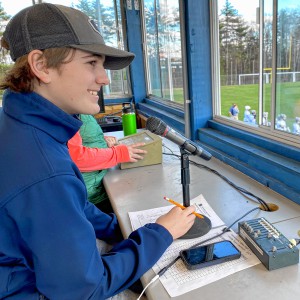Parents with lived experience are leading others through the DCYF process
| Published: 09-12-2023 7:28 PM |
Ashley Cheney knows the state’s child welfare system through and through – for better or for worse.
A few years ago, her three young children got on the bus to school. At the end of the day, they never came back.
Instead, they were sent off to foster care placements and eventually adopted. Cheney was notified she’d lost her parental rights as the result of a Division of Children, Youth and Families case against her.
She was in an abusive relationship at the time, with a fourth child on the way. Navigating the state youth protection system was like learning a foreign language with no instruction.
Stuck in the same cycle of domestic violence, a new case was opened against Cheney last year. Her son, who is now two years old, was temporarily removed from her home.
But in April, mother and son were reunified. And on August 1, she had more reasons to celebrate when her second case was officially closed.
These wins were night and day to her past experience. And when talking about what was different the second time, one name earns repeated credit: Kristi Southers.
Southers is a parent partner through Strength to Succeed. It’s a program that pairs families involved with DCYF with a parent who has been in their client’s shoes.
Article continues after...
Yesterday's Most Read Articles
 With Concord down to one movie theater, is there a future to cinema-going?
With Concord down to one movie theater, is there a future to cinema-going?
 “It’s beautiful” – Eight people experiencing homelessness to move into Pleasant Street apartments
“It’s beautiful” – Eight people experiencing homelessness to move into Pleasant Street apartments
 No deal. Laconia buyer misses deadline, state is out $21.5 million.
No deal. Laconia buyer misses deadline, state is out $21.5 million.
 Quickly extinguished fire leaves Concord man in critical condition
Quickly extinguished fire leaves Concord man in critical condition
 Concord police ask for help in identifying person of interest in incidents of cars being keyed during Republican Party event
Concord police ask for help in identifying person of interest in incidents of cars being keyed during Republican Party event
 Update: Victim identified in Lantern Lane fire in Concord
Update: Victim identified in Lantern Lane fire in Concord
This time around, Cheney had Southers. With her help came a person to keep her on track with her court orders, remind her of appointments, and most of all, help her leave her relationship.
“This case, literally it was night and day,” said Cheney. “I don’t think the case would have ended the same if I didn’t have Kristi.”
Oftentimes times leaving an abusive relationship can be like shedding a past self. Once Cheney left her partner, she also changed cars, phone numbers, email addresses, social media accounts and moved apartments.
With Southers’ help, she was able to piece this plan together.
“When you’re leaving the situation, it’s extremely dangerous like he is a crazy person,” Cheney said. “If I tried to leave on my own, without all of this stuff in place, I don’t feel like it would have ended well.”
The primary role of DCYF is to protect and serve the needs of New Hampshire’s youth and families. A major component of that is handling the state’s abuse and neglect cases.
With Cheney’s first DCYF case, the context of her relationship history and personal trauma was often dismissed by her case worker and omitted from court reports, she said.
In the eyes of the court, missing an appointment could look like she’s irresponsible or disorganized. In reality, her boyfriend had smashed her phone and she had no way to confirm the time or address.
“My own life kind of worked against me. Not only was I going through DCYF, I was still being abused at home. My car broke down. He ended up smashing a couple of my cell phones,” she said. “I feel like the caseworker was like, ‘Listen, there’s no excuse, these are your kids’.”
It was her versus the state, with no one to explain what navigating a child protection case looked like.
That’s the void that Strength to Succeed can fill for parents.
Lori Hebert relates to the type of stress Cheney went through trying to get her son back. Almost nine years ago, she also was navigating a DCYF case in hopes of reunifying with her sons.
Hebert and her family lived a middle-class life in New Hampshire, she said. Acronyms like TANF or even DCYF didn’t mean anything to her.
Then she lost her house. Soon, while experiencing homelessness, her sons were removed from her care.
When Hebert was reunified with her kids and her DCYF case was closed, she began working with Better Together – a state-run program that helps align the goals of the birth parents, foster parents, caregivers and child welfare agency staff.
In a way, it’s a precursor for Strength to Succeed, said Hebert. The program invites birth parents into a conversation about care for their kids, even if they’ve been removed from the home.
Now, Hebert serves as the program director for Strength to Succeed at Granite Pathways - one of the two-state providers, alongside the Family Resource Center of Gorham.
For Erica Ungarelli, the executive director of Granite Pathways, decades of experience in the state’s child welfare sector guides her work at the non-profit. In her most recent role, she led the state’s Children’s Bureau for Behavioral Health – overseeing the system of care that includes programs like FAST Forward.
And with her work for the state, Ungarelli helped develop the Strength to Succeed program.
It’s a model based on a program in Kentucky that addresses parents’ substance addictions – a problem all too familiar to New Hampshire, which held the second-highest rate for opioid deaths in 2015.
At the time, Ungarelli and her colleagues saw dozens of cases where parents’ rights were terminated due to addiction. Subsequently, grandparents struggled to care for the state’s “opioid orphans.”
When thinking about the purpose of New Hampshire’s child welfare system, Ungarelli noted the focus on children’s safety and support.
But in order to do that, more direction and incentives for parents to provide this care was needed.
“The system then says to the parents, ‘You have 12 months to correct all of these conditions,’ and unfurls the Dead Sea Scrolls of things and says, ‘Here you go, this is what you need to do’,” she said. “Not a lot of resources go in to sustain.”
The clock starts when a child is removed from their home. Parents have a year to prove they can provide a safe environment before their rights can be terminated.
“The federal requirement is that they have 12 months to correct or lose your child forever, and without someone helping them navigate and understanding what’s happening,” said Ungarelli.
Now Strength to Succeed provides parents with someone who’s been in their situation – with the hope of reunification in the end.
To enroll in Strength to Succeed, parents are referred through DCYF.
Oftentimes, parents don’t understand the scope of the state division or what its role is, though. With that, Strength to Succeed provides a “DCYF 101” rundown that all parents participate in.
“Fear comes from not understanding and parents don’t understand why the division does and says certain things. So we want to help mitigate that fear through education,” said Ungarelli. “Knowledge is power. You understand what’s happening, you can better navigate it.”
In the last fiscal year, starting in July of 2022, 679 families were referred to the program. Of that, just over half enrolled – the program is entirely optional.
In that year, 37 families were reunified.
New Hampshire’s foster care rates fall below the national average. For every 1,000 kids, five of them are placed in foster care in the United States, according to data from the Annie E. Casey Foundation in 2021.
For Granite State children, under the age of 18, four out of every 1,000 are placed out of home into foster care. The highest population of foster care children is West Virginia, where the rate is 20 for every 1,000. But neighboring states Maine and Vermont are among the top 10 highest, with a rate of nine kids per thousand.
For the children in foster care in New Hampshire, it’s almost a 50/50 split as to whether adoption or reunification will be the outcome. In 2021, 45 percent of kids returned home to their parents, while adoptions made up 39 percent of outcomes. Other possibilities included guardianship, emancipation or living with other relatives.
That’s all to say that Strength to Succeed would like to facilitate cases where children return home in the end. But Hebert knows that isn’t always the case.
They’ve also worked with clients whose kids are ultimately adopted, which can help the parent continue treatment for mental health or substance recovery.
“We’ve been able to support parents through termination of parental rights and stay in recovery, stay in their treatment,” she said. “That can be really tumultuous. And I really feel like we’re moving the needle to humanizing folks in need and that’s a really important piece of this work.”
With her relationship ended, living in a new apartment and holding a steady job, Cheney was ready to welcome her son back home after his temporary stint in foster care.
Now that her case closed on August 1, Cheney no longer formally works with Southers through Strength to Succeed.
But soon, she hopes to provide the same guidance for other parents.
“I’m actually going to start using everything that I went through to help other people so that’s amazing,” she said. ‘I’m hoping that one day I can actually work for Strength to Succeed.”
Ungarelli knows it’s corny, but Cheney’s desire to help is emblematic of a key tenet of the program – a sense of hope.
“We strive to give these parents hope because it’s a very hopeless time,” she said.
For many parents 10 months into the 12-month court order, reunification doesn’t feel possible.
And for Cheney, it wasn’t in her first case.
But now she will be eligible to work with Strength to Succeed in August of next year, on the one-year anniversary of her case closing.
This model of hiring people with lived experience also lends its hand to inherent professional development and growth, said Hebert. After going through the program themselves, they’re now licensed recovery support workers and offering peer support to other parents.
“To watch that evolution, it’s been amazing,” she said.
And that’s exactly the case for Cheney.
A year ago, she was fighting a system that previously took her children. Now she’s happily at home, watching her son learn to talk, hoping she can guide others to the same assistance.
“I was in the worst situation that you can really imagine and physically, mentally, emotionally. Any way you can think of, I was being abused. I just want to show people like there is a way out,” she said. “Let these resources help you get out.”


 Voice of the Pride: Merrimack Valley sophomore Nick Gelinas never misses a game
Voice of the Pride: Merrimack Valley sophomore Nick Gelinas never misses a game With less than three months left, Concord Casino hasn’t found a buyer
With less than three months left, Concord Casino hasn’t found a buyer Kearsarge Middle School drone team headed to West Virginia competition
Kearsarge Middle School drone team headed to West Virginia competition Phenix Hall, Christ the King food pantry, rail trail on Concord planning board’s agenda
Phenix Hall, Christ the King food pantry, rail trail on Concord planning board’s agenda
